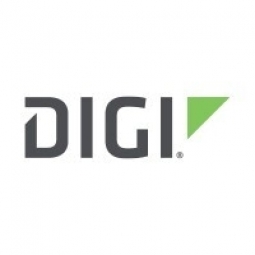Digi International

概述
|
总部
美国
|
成立年份
1985
|
公司类型
上市公司
|
收入
$100m-1b
|
|
员工人数
201 - 1,000
|
网站
|
股票行情
DGII (NASDAQ)
|
推特句柄
|
公司介绍
Digi International (Digi) is a leading global provider of mission-critical and business-critical machine-to-machine (M2M) and Internet of Things (IoT) connectivity products and services.

Supplier missing?
Start adding your own!
Register with your work email and create a new supplier profile for your business.
实例探究.
Case Study
Money Safe: Enhancing ATM Security and Reliability with IoT
Euronet, Poland’s leading provider of electronic payment and transaction processing solutions, faced a significant challenge in ensuring the security and reliability of its vast network of ATMs. The company, which processed over 1.5 billion transactions in 2009 and posted annual revenues of more than $1 billion, owns over 4,000 ATMs and manages over 20 percent of all ATMs in Poland. The challenge was to provide customers with a safe transfer of financial details and the ability to withdraw cash at any time. The company needed a wireless technology that would provide a safe, reliable, and easy-to-install solution for its ATM network. The stakes were high, as a single day of downtime for a single ATM could result in 50 unhappy customers and up to $75 in lost revenue. For Euronet, with its 4,000 ATMs, a full day of outages could result in $300,000 in lost revenue.
Case Study
Digi Gateways: Revolutionizing Bike Rental Terminals in Tel Aviv
FSM Ground Services Management, the operator of Tel-O-Fun bicycle-sharing system in Tel Aviv, Israel, faced a significant challenge. The system, which sees around ten thousand journeys daily and comprises over 1700 bicycles across 170 docking stations, required each terminal to be connected to the main control center for customer identification and bike release. Additionally, these terminals needed to process payment transactions swiftly and reliably to ensure a positive customer experience. However, implementing a wired solution would have necessitated costly roadwork, council permits, and significant disruption. Furthermore, any solution had to be rugged enough to withstand Tel Aviv's harsh summer temperatures (40° C / 104° F) and high humidity levels.





